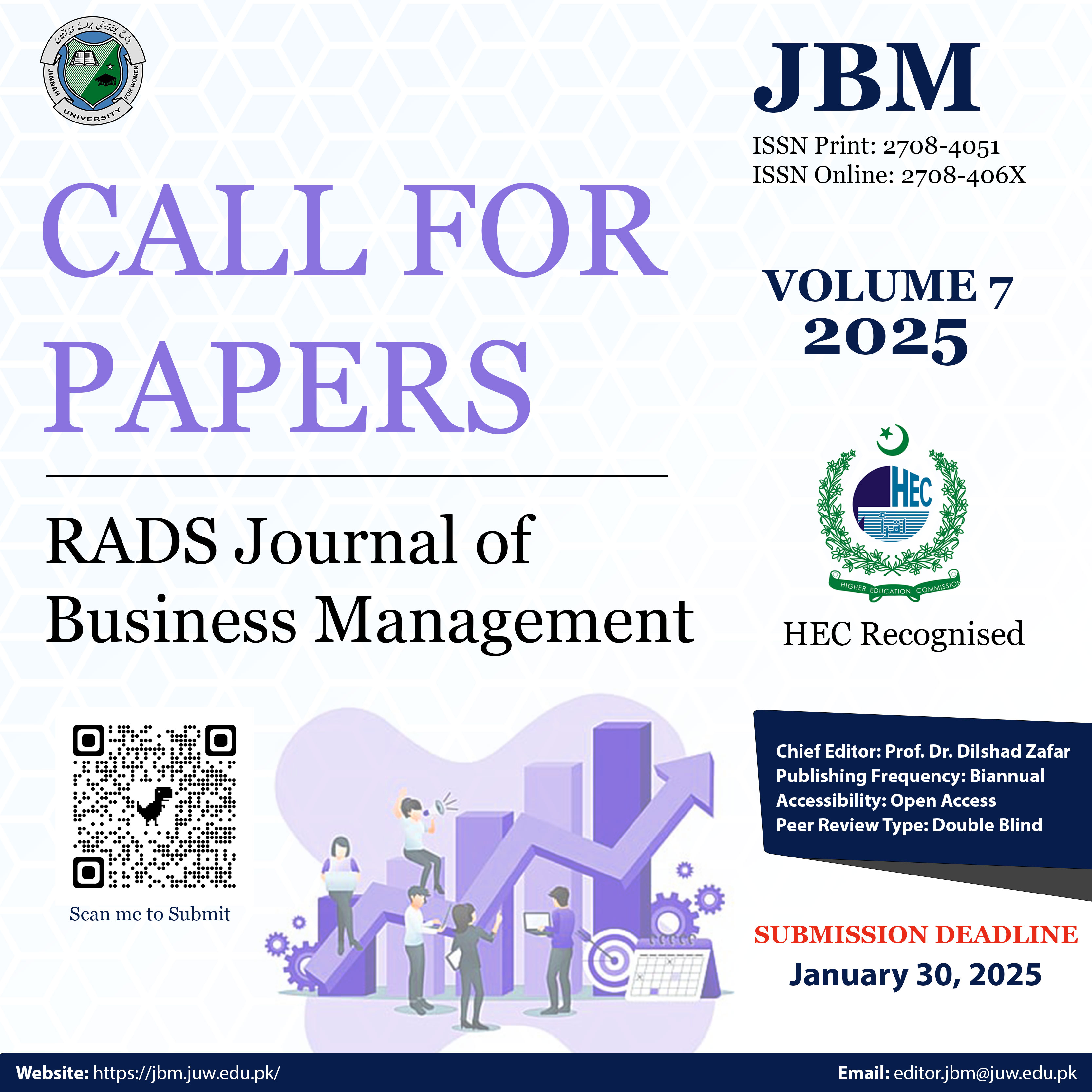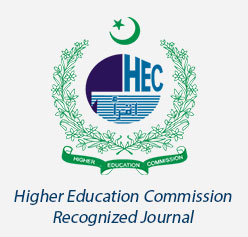The Effect of Hostile Work Environment on Talent Acquisition and Retention of Workforce: Moderating Role of Psychological Hardiness
Abstract
In pursuit of adding to the body of knowledge and fill a literature gap, this research aimed at finding out impact of hostile work environment on acquisition of talent and retention of workforce, specifically in the Health Sector. This study also finds the moderating role of psychological hardiness on the relationship between hostile work environment and talent acquisition and retention of workforce. The study derives its theoretical underpinning from the Transactional Stress Theory and coping. The study was carried out with respondent belonging to the health sector organizations of Peshawar, Pakistan. A sample of 200 respondents belonging to various age groups and levels of the organizational hierarchy was used to test the hypothesis of the study. Regression analysis was used to test the impact of hostile work environment on talent acquisition and similarly on retention of workforce. Regression analysis to test the impact of hostile work environment on workforce retention showed negative and significant results with r-square value of .34, whereas, the impact of hostile work environment on talent acquisition also showed negative and significant results with r-square value of .271. The results of moderation analysis show that psychological hardiness significantly moderate the relationship between hostile work environment and talent acquisition and as well workforce retention. Significance of the results, in accordance to theory, proves a significant impact of hostile work environment on workforce retention and talent acquisition and psychological hardiness. However, the impact is more in the case of workforce retention which might prove that workforce in the health sector of KP needs to be provided with a conducive and friendlier work environment (internal & external) for increased retention. Talent may be acquired but retention of that talented workforce in a hostile environment is the real issue.
The author retains the copyright and grants the right of first publication to the journal.





